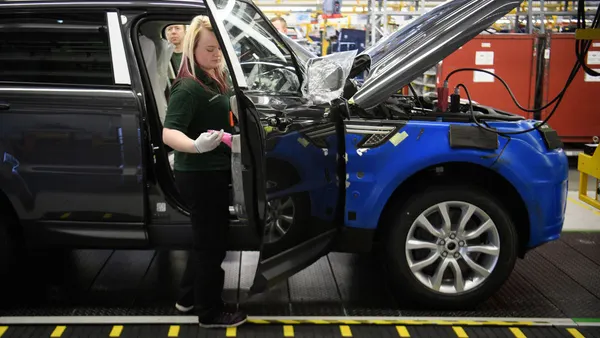Dive Brief:
- Mercedes-Benz Cars, in partnership with software company Icertis, developed a blockchain prototype to map supplier working conditions, ethics and compliance. The automaker and tech company are testing acceptance and gathering feedback from suppliers and partners in a pilot project.
- The aim of the blockchain prototype, according to Mercedes-Benz, is to increase transparency beyond the company's direct suppliers and enhance cooperation and partnership with suppliers to promote sustainability.
- The automaker will also use blockchain to track documentation and contracts in the supply chain. "This ensures that global procurement and contractual practices meet the stringent requirements of Daimler AG," Mercedes-Benz said.
Dive Insight:
The introduction of new technologies and operating procedures by customers across a complex supply chain can be a fool’s errand. Rolling out complex processes like blockchain often look fine on a project management Gantt chart but in reality, are very tough to manage.
While Mercedes-Benz Cars' use of blockchain to create transparency in the supply chain is certainly a laudable project, the implementation of this process across a broad range of suppliers can lead to increased risk due to uneven integration and supplier resistance.
Many top tier suppliers will adopt new operating procedures, either to curry favor or out of fear of losing business. Others may actively resist. Even though Mercedes-Benz Cars may be passionate about using blockchain to manage sustainable supply chains, suppliers may be less passionate, and willing, to adopt these new technologies no matter the notoriety of the customer.
I worked for a company in the early days of lean manufacturing that worked with many small suppliers, including electro-mechanical assembly houses and an assortment of sophisticated machine shops. Armed with the latest book on optimal factory floor layout, we were tasked with working with these suppliers to revise their operations to meet our new Just-in-Time delivery requirements. It was a demand, not a suggestion.
The supplier resistance to our perceived arrogance and lack of respect for their business was swift and broad-based. Our job at that point was to salvage supplier relationships. Many of our key suppliers threatened to walk away from our business rather than acquiesce to what they considered a new fad in manufacturing. Their businesses were successful. They didn’t need us.
The blockchain service platform that will be used by Mercedes-Benz Cars is deemed to be user-friendly. The suppliers who will be asked to use it may be less than friendly when their time comes.












